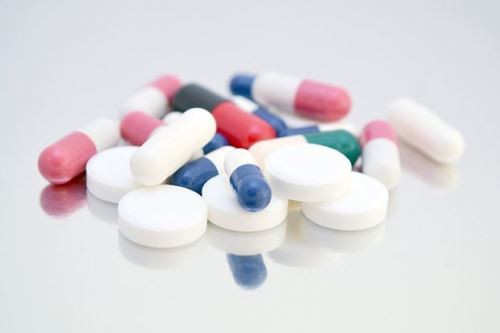
If you have any question, please feel free to email us. We will touch with you as soon as possible.
Yesterday, AbbVie announced that the European Commission (EC) approved its oral JAK inhibitor upadacitinib (upadacitinib, English trade name Rinvoq) to expand its indications for the treatment of adults and 12 patients who are suitable for systemic therapy. Adolescents over the age of moderate/severe atopic dermatitis can choose whether to combine with topical corticosteroids (TCS).

Upatinib has reached all primary and secondary endpoints in multiple phase 3 clinical trials. Compared with placebo, whether as monotherapy or in combination with TCS, patients in the upatinib group showed rapid and significant improvement in skin clearance and relief of itching (p<0.001). The press release stated that this is the first JAK inhibitor approved for the treatment of atopic dermatitis.
Upadacitinib is a selective and reversible oral JAK inhibitor, currently under study in several immune-mediated inflammatory diseases. The JAK protein family mediates the signal transduction of a variety of inflammatory factors. In cell experiments, upadacitinib preferentially inhibits the signal transduction of JAK1 or JAK1/3. In August 2019, it was approved by the U.S. FDA for the treatment of moderate to severe adult patients with active rheumatoid arthritis who are inadequate or intolerant to methotrexate. Upadacitinib has obtained positive results in phase 3 clinical trials for the treatment of rheumatoid arthritis, atopic dermatitis, ulcerative colitis, psoriatic arthritis and other inflammatory diseases.
The Phase 3 trial project enrolled more than 2500 adults and adolescents with moderate/severe atopic dermatitis, and evaluated the efficacy and safety of upadacitinib as a single agent or in combination with TCS compared with placebo. Both 15 mg and 30 mg doses of upadacitinib met all primary and secondary endpoints. At week 16, compared with the placebo group, significantly more patients in the upadacitinib group achieved a 75% improvement in eczema area and severity index (EASI 75) and clear/almost clear (vIGA-AD 0/1) skin symptoms (vIGA-AD 0/1). In addition, patients in the upadacitinib group who achieved clinically significant reduction in pruritus (NRS improvement ≥ 4) were also significantly higher than those in the placebo group.
In terms of safety, the most commonly reported adverse reactions (≥5%) in the 15 mg or 30 mg upadacitinib group were upper respiratory tract infection (25.4%), acne (15.1%), herpes simplex (8.4%), headache (6.3%) and blood Creatine phosphokinase (CPK; 5.5%) increased. The most common serious adverse reaction was severe infection (<1.0%). The drug is also supported by safety data provided by 10,500 subjects in various clinical programs.
Tel:+86-020-61855200-673
Fax:+86-020-66392525
Email:info@upharm.cn
Address:12th floor, No. 181, Kexue Avenue, Huangpu District, Guangzhou, China